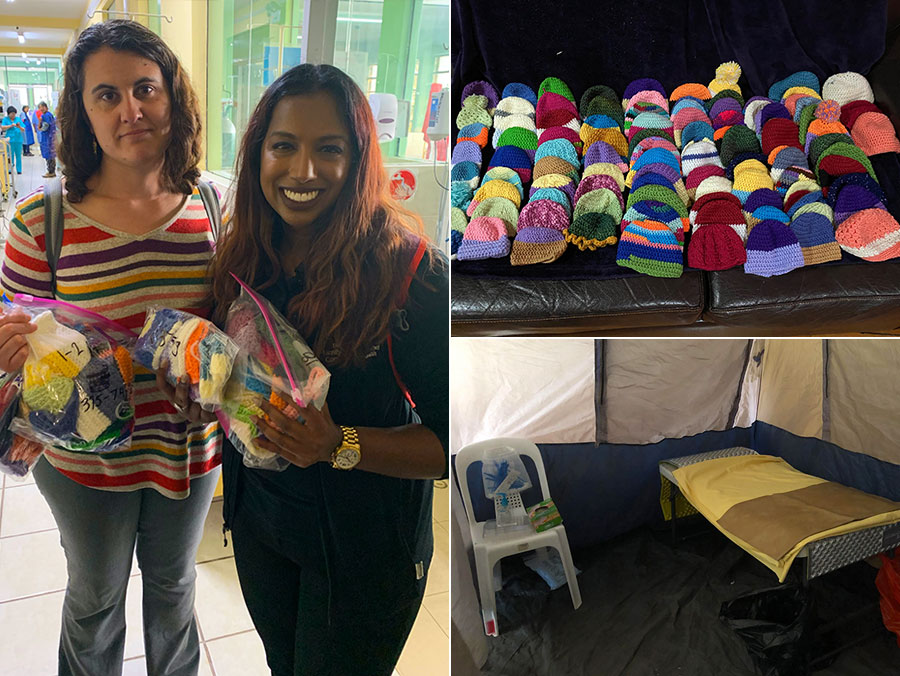Lashika Yogendran, MD, Kristi Smith, DO, and Sadie Mitten, MD, traveled to Cusco, Peru as participants in our Family Medicine Residency Global Health Pathway. They had three goals: training health care providers to be trainers of the Helping Babies Breathe curriculum, donating crocheted hats to Peruvian NICUs to help preterm infants with thermoregulation, and learning the standards of care for both chronic and acute conditions in Peru.

Kristi Smith DO, Lashika Yogendran MD (left) and Sadie Mitten MD (not pictured) traveled to Cusco, Peru as participants in our Family Medicine Residency Global Health Pathway.
In Cusco, they had an opportunity to work in both a public hospital (Hospital Antonio Lorena) as well as at an EsSalud clinic. These were two vastly different experiences. Lorena Hospital, a large maze of shipping containers serving as a temporary hospital until a permanent one is built, helps people without insurance. In contrast, EsSalud Metropolitano Clinic is attached to the EsSalud hospital in downtown Cusco and is staffed by mostly primary care physicians. Patients are seen for chronic medical condition follow-up, similar to practices in the United States, as well as for more acute care visits.
Common conditions they encountered were anemia in children and pregnant mothers, COPD related to use of wood stoves for cooking indoors, and cutaneous leishmaniasis—a major health concern in Peru. One hospital they toured in Cusco had an entire wing dedicated to the treatment of leishmaniasis, a vector-borne disease caused by a protozoan transmitted to humans from the bite of a sandfly. The characteristic painless ulcerated skin lesions with raised borders can take months to years to heal.
Drs. Yogendran, Smith and Mitten also participated in cervical cancer screening campaigns created by the organization CerviCusco, where they went to locations around Cusco to provide low-cost screenings to women who otherwise did not have access to this important tool. They performed pap smears and breast exams for women in public spaces such as supermarkets and churches (using a tent for patient privacy). They also had the opportunity to teach PA and medical students how to perform a pap smear in a patient-centered way.
Prior to travel, they crocheted over 100 preterm baby hats to help with thermoregulation in addition to essential kangaroo care for premature infants. The hats were donated to two NICUs in Cusco.
A primary objective during their experience was to train local medical staff for certification in the Helping Babies Breathe curriculum. This AAP-instituted program is intended to teach the most basic but critical steps in neonatal resuscitation. By training local health workers, they could disseminate this information to community-based birth attendants. Based on our post-training assessment, 100% felt that they would be likely to use this curriculum to train community birth attendants, 50% thought this would be feasible to apply to surrounding community birth attendants, and 100% felt comfortable training others in this curriculum.
Published: June 2020
Want to know more?
For more information about Global Health contact:
Ann Evensen, MD, FAAFP
DFMCH Director of Global Health
ann.evensen@fammed.wisc.edu
